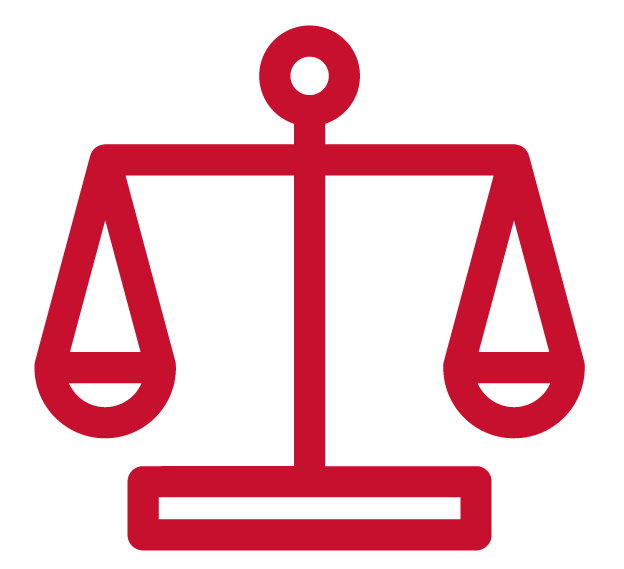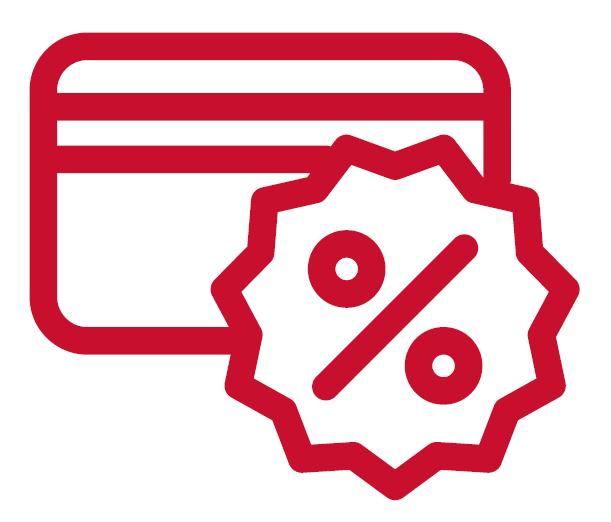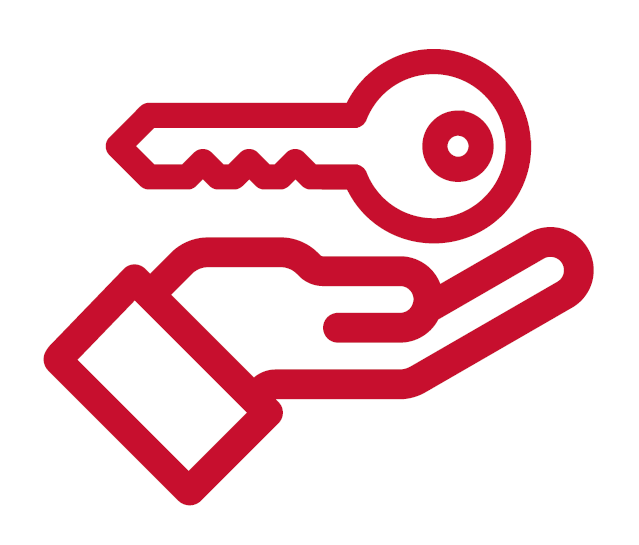In 2025, the National Consumer Law Center (NCLC) will fight to preserve critical consumer protections and our consumer protection agencies and will seek opportunities to advance economic and racial justice

CFPB & FTC:
Protect Our Consumer Watchdogs
The Consumer Financial Protection Bureau and the Federal Trade Commission enforce the law and combat unfair, deceptive, and abusive practices to keep the economy fair.
Protect the CFPB’s funding and independence.
Restore FTC power to make wrongdoers compensate victims.

EQUITY & RACIAL JUSTICE:
Defend & Enforce Our Laws
Discriminatory practices in the financial services industry threaten the prosperity of families.
Defend disparate impact standards and the duty to affirmatively further fair housing, and enforce fair lending and fair housing laws vigorously.
Maintain and strengthen language access requirements for financial services companies.
Preserve the collection of race and ethnicity data and require loan-level data.
Ensure Artificial Intelligence technologies in financial products and services are not biased or discriminatory and comply with fair lending and consumer protection laws.

ACCESS TO JUSTICE:
Restore Our Day in Court
Our justice system should be open to all.
Fight fine-print forced arbitration clauses, class action bans, and barriers to court access that take away access to justice and prevent us from joining together to fight widespread wrongdoing.
End the double taxation of successful consumer claims, which turns a winning lawsuit into a loss.

BANKING & PAYMENTS:
Keep Our Money Safe
Banks and fintech companies must provide safe access to bank accounts and payments and ensure vulnerable consumers are not shut out of the banking system.
Stop abusive fees related to bank accounts and payment apps, including overdraft fees and so-called “tips.”
Protect people from fraud and errors in the banking and payments systems.
Require deposit insurance for mobile wallets and all accounts that hold consumer funds.

BANKRUPTCY:
A Fresh Start for Working Families
Bankruptcy gives debt-burdened families a chance for a fresh start—all the more essential as household debt has soared to $17.8 trillion.
Simplify the bankruptcy process and eliminate burdensome requirements that have denied consumers access to bankruptcy relief and led to a 25% increase in insolvency.
Give student loan borrowers, and those struggling with unaffordable criminal justice fines and fees, the same fresh start opportunity as others.
Increase protections so families can declare bankruptcy without losing homes, Earned Income and Child Tax Credits.

CARS:
Safe & Affordable Vehicles & Financing
Cars are essential for families’ physical and economic mobility, yet the high cost of cars and financing creates economic hardships and risks.
Ban financing that is more lucrative for creditors when the buyer defaults.
Reduce repossessions by allowing people to catch up on what they owe before a car is repossessed.
Defend rules requiring clear pricing and require a cooling-off period for sale of add-on products.
Ensure consumers are not sold cars with unperformed safety recalls or other safety defects.
Promote car ownership programs that provide safe and affordable financing and cars, including electric vehicles.
Collect sales and finance data to understand and reduce abuse and discrimination.

CREDIT REPORTS:
Stop Errors & Abuses
Credit reports, background checks, and tenant screening reports are full of errors and reinforce racial disparities.
Enact comprehensive reform, including improving accuracy and dispute investigations, shortening time periods for negative information, and limiting the use of credit reports for jobs and tenant screening.
Create a public credit registry that is designed to be responsive to consumer needs and equity concerns.

CRIMINAL JUSTICE:
Disarm the Poverty Trap
Unaffordable fines and fees trap families in poverty, jeopardize successful reentry, and impede public safety.
Incentivize state and local governments to reduce fines and fees and end debt-based driver’s license suspensions that prevent people from getting to work.
Motivate states to eliminate criminal justice debt as a barrier to record clearing to enable access to jobs and housing.
End debtors’ prisons and require private collectors of state and local government debt to comply with fair debt collection rules.
Stop private profiteering that imposes extortionate costs on justice-involved individuals and can jeopardize successful reentry.

DEBT & DEBT COLLECTION:
Protect Consumers from Abusive Collection Practices
Debt collectors are a top source of consumer complaints, with alleged debts in collection impacting tens of millions.
Protect wages, bank accounts, the Earned Income and Child Tax Credits, and Social Security benefits from garnishment or offset.
Increase patient access to financial assistance, enforce existing financial assistance requirements for medical providers, require reporting of collection practices, and prohibit abusive collection practices.
Prohibit deferred interest and deceptive or illegal practices by medical payment products like medical credit cards.
Stop nursing home debt collection against third parties.
Strengthen and defend Fair Debt Collection Practices Act and Regulation F.

ENERGY, TELECOM & ROBOCALLS:
Keep Vulnerable Consumers Connected
More than 1 in 4 households report challenges paying energy bills. Households suffer from the digital divide and robocalls.
Defend and enhance programs that protect consumers from unaffordable energy bills and utility disconnections during extreme weather and all year. Support expansion of programs such as the Low Income Home Energy Assistance Program, the Weatherization Assistance Program, and Inflation Reduction Act rebates and incentives for low-income consumers.
Ensure that families can afford their utilities including broadband and voice service and can access affordable weatherization, energy efficiency, and renewable energy without exposure to risky financing.
Strengthen programs to connect households to the internet and shrink the digital divide.
Protect people from telemarketing, scam, and unwanted robocalls and texts, and ensure the TCPA remains an effective remedy.

HIGH-COST CREDIT:
Limit Interest Rates and Stop Fintech Evasions
Interest rate limits are the most effective protection against predatory lending and should cover all forms of credit.
Extend the 36% interest rate cap that protects active duty servicemembers to all consumers, with much lower rate caps for large loans.
Stop evasions of federal and state lending laws through rent-a-bank lending, fake tribal lending, and fintech credit products like earned wage advance loans, which make workers pay to be paid.

HOUSING:
Ensure Access to Sustainable Homeownership
High mortgage costs make it hard to equitably expand homeownership, requiring affordable hardship assistance and loan financing options.
Enable struggling homeowners to access affordable home-saving options, especially for FHA and VA loans and for heirs property owners. Strengthen loan sale protections. Expand access to mortgage performance data.
Finalize streamlined procedures for homeowners to access foreclosure avoidance programs.
Promote small dollar mortgage loans and ensure abusive products such as PACE loans, land contracts, and home equity investment products are subject to federal mortgage rules.

RENTERS:
Help Struggling Families Secure & Maintain Housing
Junk fees, rental debt, and tenant screening add to the burden of families trying to rent decent, affordable housing.
Ban unfair junk fees that add to skyrocketing rents.
Stop tenant screening reports from blocking families, especially renters of color, from securing decent housing.

STUDENT LOANS:
Lift the $1.7 Trillion Weight from Consumers’ Shoulders
The financial security of tens of millions of American families is threatened by unaffordable student loan debt.
Ensure access to affordable repayment and fully implement the FUTURE Act.
Discharge old and uncollectible federal student loan debts and extend expiring protections against taxation of canceled student loan debt.
End federal debt collection practices that push seniors and working class families into poverty.
Modernize studentaid.gov and federal student aid infrastructure and data systems.
Increase oversight and accountability of federal servicers and contractors that manage student loans and stop contracting with poor performers.
Questions? Contact Stephen Rouzer ([email protected])
See all resources related to: Access to Justice, Auto Sales & Finance, Consumer Protection Regulation, Credit Reporting & Data Fairness, Criminal Justice, Debt & Bankruptcy, Equity & Racial Justice, High-Cost Credit, Homeownership & Foreclosure, Robocalls & Texts, Student Loans